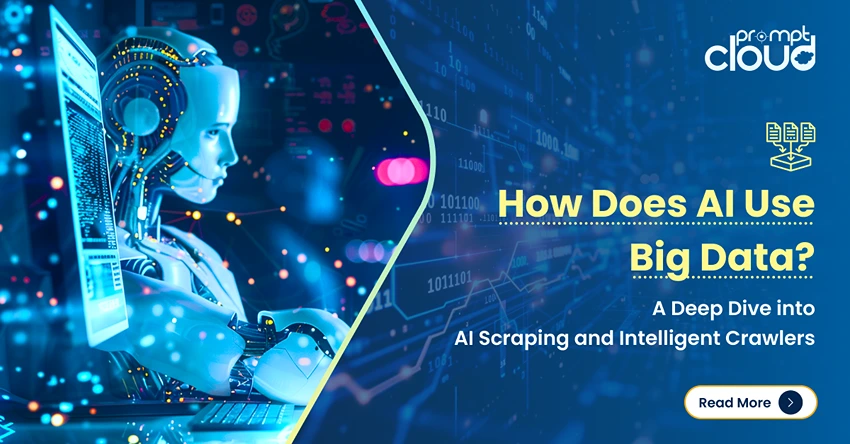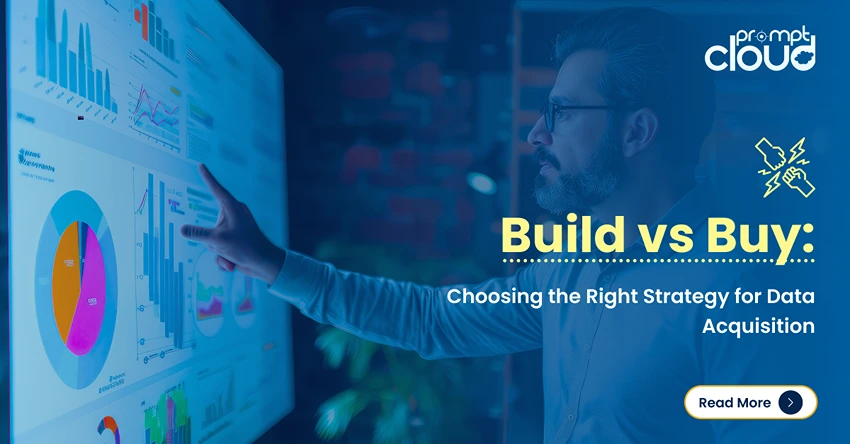Times have evolved substantially on the technology landscape. Previously unheard of concepts are now at play in the world at large. With the advent of the internet and social media, the infiltration of smartphones and the numerous technological advancements which have relentlessly kept on coming, the rules of every game have changed.
One of the most radical, unique and complex entities that have emerged as a result of this internet boom is Big Data. The intricacies and aura of Big Data has already confounded many of the world’s most successful businesses and have been instrumental in the success of others. Put to use smartly, Big Data has the potential to help your business leapfrog to the top when it comes to having access to relevant, actionable data which can be used to build and fine-tune the right business strategies. Not understanding the core concepts of Big Data, or using it without deep insight, however, can prove detrimental to the prospects of a business- a fact that many companies have found out too late, much to their chagrin.
It is impossible to ascertain the scope and the volume of Big Data, with huge mounds of data being generated and added to the seemingly endless pool each passing day. What companies have found out already is that when it comes to Big Data, we are still very much in the first portion of the learning curve regarding its impact on business and the society at large. With businesses trying to leverage Big Data in many new, innovative ways and governments trying to ensure that more and more data can be generated for eventual monetization, it is imperative that we study in-depth the possible implications of Big Data and ascertain whether it can be classified as an asset, a liability or a potent mix of both.
Big Data – Basics
Big Data is the popular name gives to the phenomenon where voluminous, exhaustive amounts of data both unstructured and structured which can potentially be mined for use in different ways. Although the term is still evolving and connotations are varied, it is generally used to refer to tremendously large volumes of data. Most of the data results from daily, regular activities on the internet carried out by billions of people. It is less of a concrete, defined entity and more of a concept.
When it comes to the possible impacts and influence of Big Data on businesses and on society at large, there are some important points to consider. Let us take a look at a few of the most pressing ones.
Positives
When it comes to Big Data, there are a number of tried and tested, accepted processes of data extraction and mining. Although opinions about data extraction from Big Data are mixed, there are some fairly standard practices in place which most businesses take advantage of. Through the process of data mining, turning unstructured data sets into structured data, and various methods of data integrations, Big Data has been positively used in many social and business sectors. Some of these are –
-
Social Innovations –
In many areas of the world, there is an active movement afoot which aims to use the study of Big Data to facilitate better societies. Big Data has been an integral part of seminal research work which has the potential to create better, smarter cities and towns with lower levels of emission and pollution, lower cost of living and an overall better quality of life. There is also an effort to obtain information in an anonymous, impersonal manner so as to maintain the balance between ethical data mining and protecting the privacy of individuals.
-
Healthcare –
This is one sector where the judicious use of Big Data has proven to have excellent results. Big Data has been an important component which has contributed significantly to the research into the causative factors, nuances and possible treatment options of life threatening diseases like cancer, AIDS, and Ebola.
-
Environment Studies –
Research to better understand the forced behind major global environmental concerns like pollution and global warming has been immensely helped by the mining of Big Data. The unbridled access to large, exhaustive data sets has helped expedite the process of research and can very well play a major part in developing further understanding and insight into these phenomena.
-
Businesses –
Businesses that have judiciously used Big Data to acquire actionable information about their target market have gone on to achieve success. Big Data provides business owners to have a finger on the pulse of their target demographics and develop products and services that are better suited to meet the needs of more. With the unrestricted access to Big Data, there have also been other positives like the creation of healthy competition, better products and services in general and a drop in prices in many segments, which is of benefit to the general public.
The Downside – Corrupt Practices
With all the good in the world that Big Data is currently doing and is expected to do in future, there are other sides to this entity that can easily attract those with a more ruthlessly financial bent of mind. Big Data mining can as easily be applied towards doing good in society as it can be to abuse individual privacy, tracking behavioral data of people without letting them know about it and even finding unfair means to make more money. Although at present most government and businesses use Big Data while staying well within their moral and ethical obligations, there is still some room for misuse and malpractice.
Individuals with an aptitude for technology can easily fashion their Big Data mining efforts to passively influence and manipulate groups of people. Certain foreign governments have also tried to use Big Data in an effort to control their populations’ freedom of action and right to information. Entrepreneurs can easily find certain uses for Big Data which can be equivalent to gamifying the system. Big Data, when coupled with a mentality without scruples and a will to do anything to succeed can lead to disastrous consequences on the internet. It is unfortunate that often large scale security breaches, hacks, data loss and compromised data integrity is what it takes for many people to question critically the impact of Big Data and how it can potentially be used. Many organizations have found out the hard way that dealing with Big Data is not easy, and any loophole in the system can critically damage their credibility, reliability and trust with their clientele.
For businesses, there is always the danger of Big Data being used in unethical, inappropriate ways. Another risk is the fact that adequate use of Big Data involves the development of certain competencies and insights, the development of which can turn out to be a sizeable investment. If the resultant data does not make a dent on the fortunes of the business, it then needs to be written off as a loss both financially and time-wise. Such a predicament can prove to be disastrous for any company.
The Potential for Change for the Better
If Big Data is to come across totally as an asset and not a liability, there needs to be significant changes in the manner of handling it both on an individual level and on an organizational level. Engineers and data scientists need to be trained and conditioned with the concept that the utilization and integration of Big Data into anything of importance need to be laced with concrete, strict standards of moral and ethical responsibility. The same moral and ethical standards which govern major areas like legal systems and healthcare need to be brought into the field of Big Data.
Another important stumbling block is the fact that the sheer size and volume of Big Data itself can act as an entry barrier. The sheer financial burden that it takes to take advantage of Big Data limits its usefulness to only those people and companies that have deep pockets.
The members of the public also need to develop certain responsibilities. After all, it is their actions which governs the generation of Big Data. We, as people, need to take more care of the kind of data trail we leave behind. We also need to look into how the companies we patronize make use of Big Data and use that as an evaluating tool to decide who to do business with.
While it is easy to become overwhelmed by the sheer size and potential of Big Data, there is also a concrete requirement to remain realistic about the various ways it can be used for nefarious purposes, and the concerns regarding ethics and privacy that it raises. As members of the society, everyone needs to shoulder a part of the responsibility in keeping good things about Big Data alive and slowly eliminating the darker sides of it. With each passing year, our understanding of Big Data is set to improve, which might be exactly what is needed to ensure that Big Data remains an asset to businesses and to society, and not a liability.



















